The Sahitya Akademi Award is a literary honor in India annually conferred by the Sahitya Akademi situated in New Delhi, India’s National Academy of Letters to honor and appreciate the most outstanding books of literary merit.
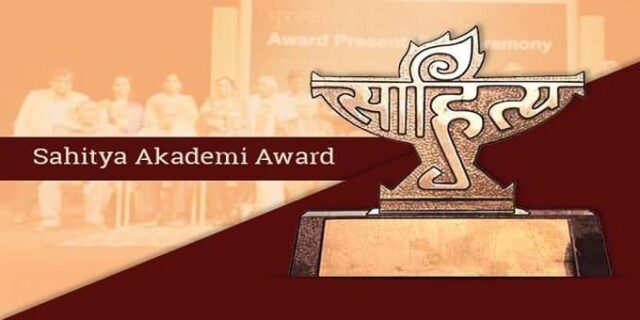
The books can be published in any of the major 24 languages in the eighth schedule of the Indian constitution. This award celebrates individual contribution to literature and not only inspires but also highlights the importance of literature in our lives.
Given every year since 1955, this award is unique both in essence and in structure. As for the Hindi Sahitya Akademi Award, writers and their works are acknowledged concerning the upliftment of Indian literature and Hindi literature in particular.
Anamika: A 2020 Hindi Sahitya Akademi Awardee
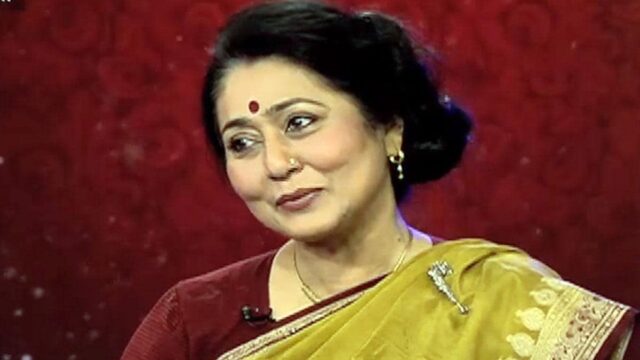
Dr. Anamika, a recipient of 8 national awards, which include Anushtup, Doob-dhaan, Khurdari Hatheliyaan, Tokri mein Digant, and Paani ko Sab Yaad thaa, has not only moved the world with her powerful, thought-provoking, and outstanding poetries, but also helped view patriarchy from a new perspective.

She has been awarded the prestigious award for her poetry collection Tokri mein Digant: Therigatha 2014. Apart from Dr. Anamika, 19 other poets have also been awarded by the Sahitya Akademi.
Patriarchy, the male authoritarian system, has left little to no scope for other genders to live freely and peacefully, with as much power over themselves as men hold over them.
Dr. Anamika, through her poetry, has proven to be a true feminist.
Read More: In Pics: Slam Poetry Culture Of India And Some Good Poets
A Glimpse At The Poet’s Bashing Of Patriarchy
I have conveniently put together some of the leading excerpts regarding patriarchy for easier comprehension. Let’s now, without further ado, look at the pieces of great significance.
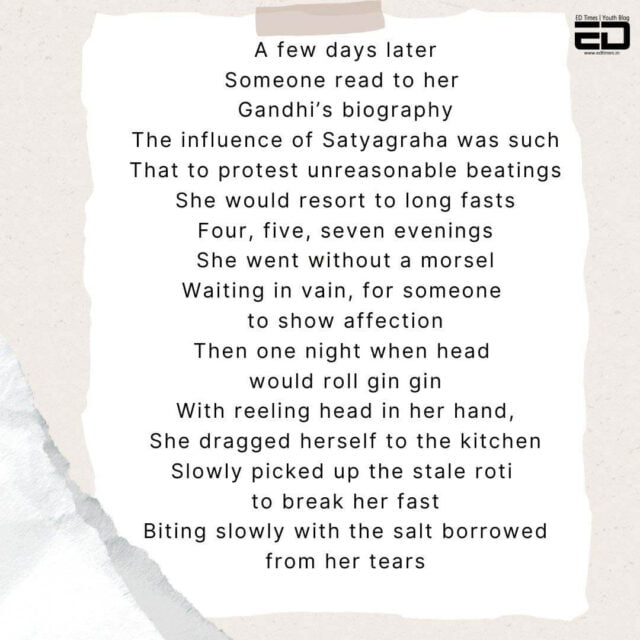
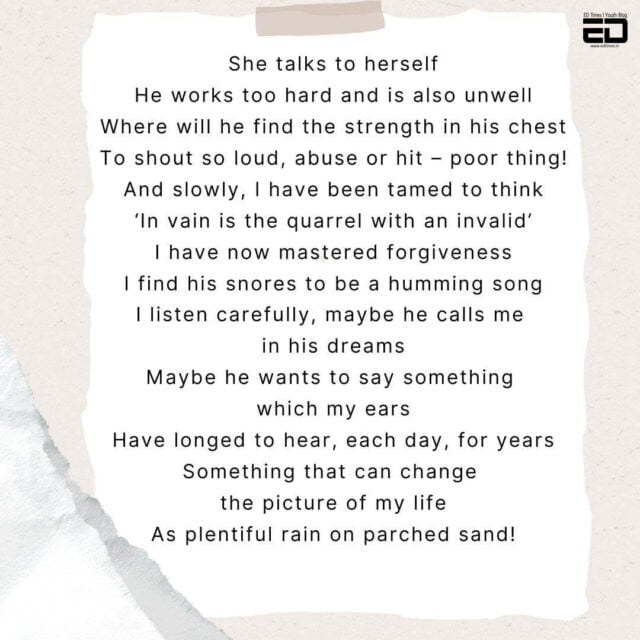
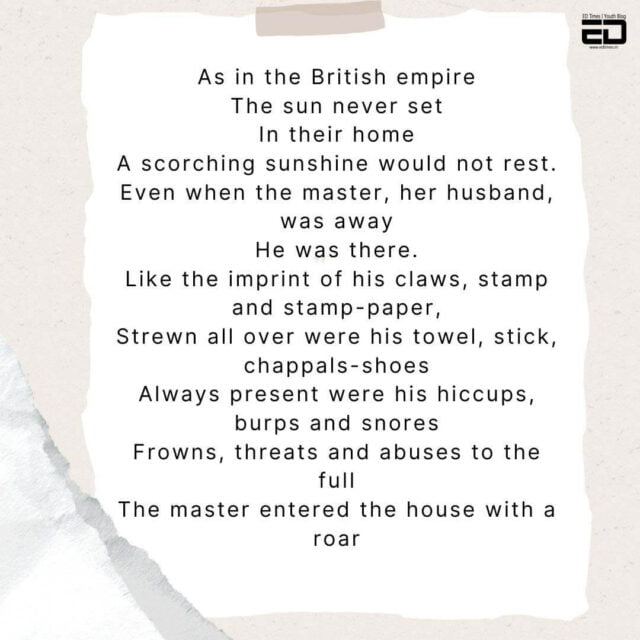
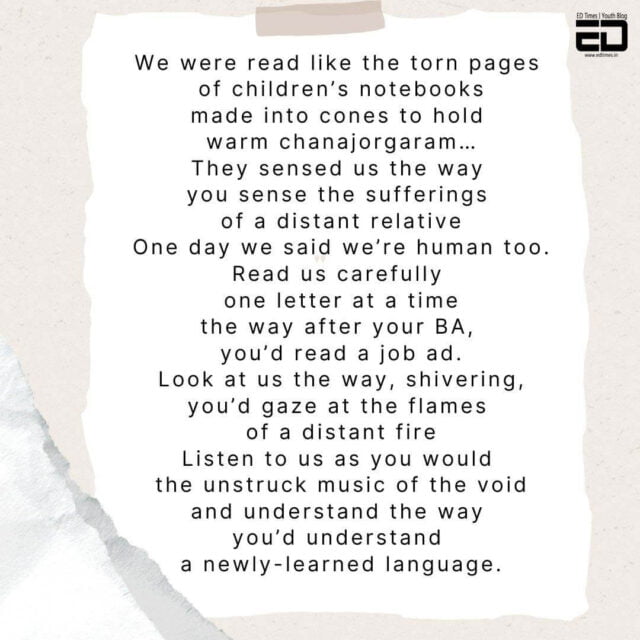
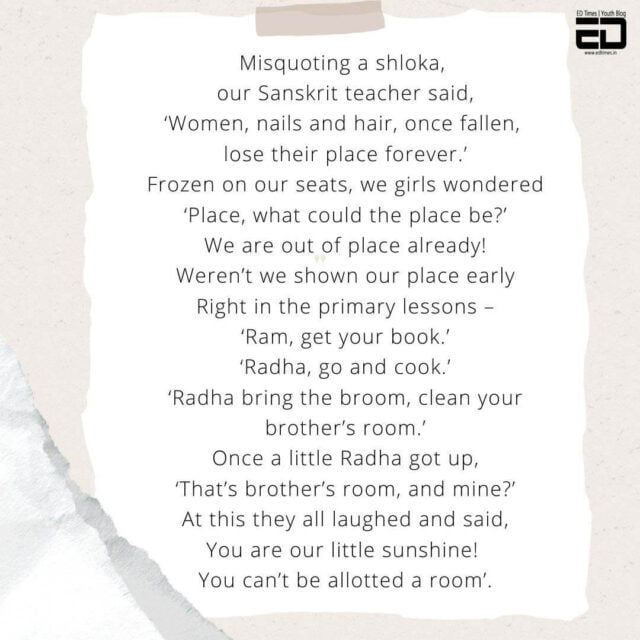
All in all, the spirit of equity, rather than equality, is what Dr. Anamika’s stance is about. She isn’t merely looking for a simple strategy to pit women against men or any gender against men for that matter. No, her ultimate aim is to spread a mat (what she calls a chatai bichhana).
Dr. Anamika believes that the only way through is in. She wants to disrupt all gender-based hierarchies. She also favors “locating a woman in an all-inclusive world where other binaries of class, caste, and gender are rendered meaningless.”
Need Of The Hour
Whenever personal experiences are shared out in public, with others who have suffered equally, if not more, under the hands of perpetrators (patriarchal and patrilineal society in this context) it becomes of utmost significance that their voices be heard and amplified.
To make a bunch of women feel empathized with, and to let them know that they have others who stand in solidarity with them and their impending cause, will go a long way.
Only when women come together, take a stand, and advocate against the unjust issues will they feel empowered and dare to rip apart and bash the social, economic, and familial structures providing for the glass ceiling that has enclosed women for the last few centuries.
To fight for rights, and rightfully so, of being equals and being neither oppressed nor subjugated anymore is the ultimate aim.
Image Source: Google Images
Sources: Scroll, Tribune India, TOI
Find The Blogger: @evidenceofmine
This post is tagged under: Dr Anamika, Anamika, poem, poems, poetry, poetries, India poems, Indian poetries, poets, poet, Indian poets, literature, Indian literature, Hindi literature, Hindi Sahitya Akademi Award, Sahitya Akademi Award, Hindi Sahitya Akademi Award 2020, Sahitya Akademi Award 2020, patriarchy, patriarchal society, patriarchal, award, literary award, Indian literary award, literary awardee, Hindi Sahitya Akademi Awardee, MA in English literature, PhD, DLit, Sahitya Akademi Awardee, Hindi Sahitya Akademi Awardee 2020, Sahitya Akademi Awardee 2020, Sahitya Akademi, New Delhi, India, Sahitya Akademi India, India National Academy For Letters, books, literature books, Hindi poetry book, merit, published book, published poetry, published poem, writers, writer, academic, National award, National awardee, Indian Constitution, Anushtup, Doob-dhaan, Khurdari Hatheliyaan, Tokri mein Digant, Paani ko Sab Yaad thaa, men, male authority, women, female oppression, gender oppression, feminist, feminism, hierarchy, society, Indian society, male favoring, authoritarian, patriarchal outlook, patrilineal, poetry theme, social issues, political issues, familial issues, personal issues, communal issues, Anamika Bejagah, Bejagah poem, Anamika Striyaan, Striyaan poem, Pativrata poem, Anamika Pativrata, Arlene Zide, translator Arlene Zide, translator Rekha Sethi, Rekha Sethi, abuse, women abuse, female abuse, oppession, subjugation, violence, gender violence, indoor violence, women empowerment, women upliftment, female empowerment, female upliftment, Anami Hindi Sahitya Akademi Awardee, Anamika Hindi Sahitya Akademi Award 2020, Anamika poetry Hindi Sahitya Akademi Award 2020 , Anamika poems Hindi Sahitya Akademi Award 2020, Hindi Sahitya Akademi Award winners 2020, Hindi Sahitya Akademi Award winner 2020, winners of Sahitya Akademi Award 2020
Other Recommendations:
Love, Poetry, Rhythm and Divinity: The Ecstatic faith of Jalaludin Rumi
































